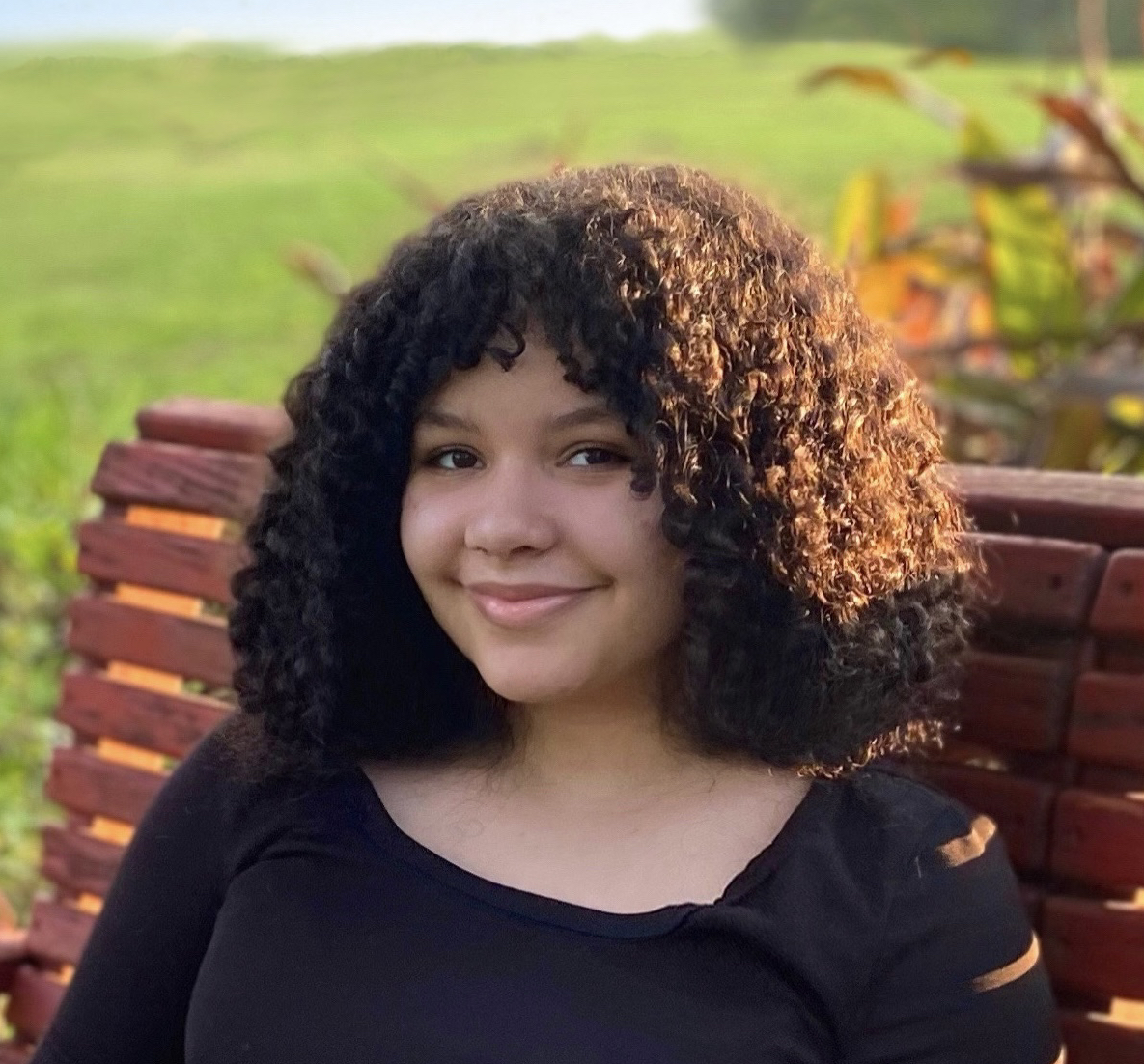At the end of the day, how can we expect students to succeed if they don’t know what they want to succeed in?
Ahmya Rivera, Young Learner
Update – May 20, 2022: Ahmya Rivera’s upcoming book, STEAM Quest: Story-based Activity Book, can be pre-ordered through Kickstarter. The purpose of STEAM Quest is to promote skill-building opportunities, diversity in literacy, and accessible S.T.E.A.M. resources. https://www.steamquestthebook.com/
Ahmya Rivera is a young leader from Elizabeth City, North Carolina. For the past four months, she has been working on a children’s book called “STEAM Quest: Story-based Activity Book.” Her book is focused on exposing elementary-aged learners to career opportunities they may have never known about. We spoke with Ahmya about the book and how her own educational journey led to its creation.
Q: How would you describe your relationship with the current education system?
Ahmya: I’ve never had the best view of the education system. I live in a lower income city and from a very young age, I began noticing what having a lack of opportunities—educationally and support-wise—can do to students. I saw people I once knew get wrapped up in drugs or end up on a negative trajectory in general.
It has always made me wonder how a person’s life would have changed if they’d had more opportunities. This is why one of my biggest passions is to provide opportunities to lower income students, especially after seeing the opportunities available to students in higher income areas.
This difference in opportunity showed up for me most clearly when I switched from a conventional public school to a charter school. Outside of regular classes, the only extracurricular options available at my old school were football, announcements, and mock trial—that was it. At my charter school, all of a sudden, I had the option to participate in chess club, debate club, envirothon, and take classes like biotech and computer science, to name a few.
With more specific options, it no longer feels like classes are structured as general topics—math, science, English. In my past school, this lack of specificity made it easy for students to say, “I don’t like math” or “I don’t like science” and write it all off. I think giving students the opportunity to pursue specific subjects that they actually enjoy will give them a better direction later in life. At the end of the day, how can we expect students to succeed if they don’t know what they want to succeed in?
This is why I especially like the idea of career exploration opportunities for students of all ages. Seeing a clear path early on will help later in life.
My friends who still attend conventional public schools tell me, “Wow, you are so clear on what you want to do, and I’m feeling pretty lost.” Many charter schools don’t allow admission once you have already started high school, so they can’t make the switch. I find that to be really unfortunate, and it’s another reason I want to help bring more opportunities to students. Creating opportunities for lower income students no matter their age, or location, is something I will always continue doing.
Q: Having new options available to you can be a small, yet meaningful, spark to see more possibilities for your future. How did that influence the leap you took in founding an organization and wanting to write your book?
Ahmya: Overall, I felt a shift mentally in what I could accomplish. The options available to me helped, but it was also the community I found myself in. In my previous environment, it felt like everyone was stuck. Nobody really knew what they wanted to do. Now, I have the chance to interact with people acting as “go-getters”—because they know what they want to pursue. This has really resonated with me.
The combination of my new environment, my mentality toward what’s possible for the future, and my past experiences has provoked me to support students who don’t have access to a quality education.
Q: How would you describe this new mentality and who helped shape it?
Ahmya: I try to live by the quote, “If opportunity doesn’t knock, build a door.” That’s the mentality I have now. Much of it was influenced by my community and family.
When I began seeing new possibilities for myself, I reached out to programs I wanted to be a part of and started meeting other peers who had my similar go-getter, challenge-driven mentality. These settings showed me who I wanted to be around and allowed this mindset to grow within me.
The biggest thing my family gave me was encouragement. My nana and mom would always encourage me to explore new things and get out of my comfort zone. Because of that, it allowed me to think differently and have a unique view on unfortunate situations. I always view setbacks as learning opportunities. And, fortunately, I have the drive to tackle said setbacks.
Q: How did that family and community support influence the creation of your organization, Youth Upholding Democracy?
Ahmya: It all started with the Junior State of America’s Young Women’s Leadership Institute. At the end of the program, we had to create a project. I knew I wanted to amplify underrepresented voices, and there were five other girls who were passionate about this as well.
We came together and decided to focus on increasing voter turnout and civic engagement among youth. Although my focus up until that point was more around amplifying quality education, I wanted to help other youth advocate for issues they were passionate about as well. The organization officially launched on July 30th, 2020.
I’m solely leading the creation of our magazine, “Challenging Tomorrow.” The title is inspired by one of our driving questions as an organization: How can we positively impact tomorrow and the next generations to come?
I’m still sorting out the logistics, but I want to provide a space for young people to share their passion and voice toward the things that matter to them, rather than the magazine being constrained to any specific topic.
Q: And, now you have this book you’re working on, STEAM Quest: Story-based Activity Book. Is there any correlation to Youth Upholding Democracy?
Ahmya: The book isn’t correlated to the organization, but I’m conducting both initiatives for similar reasons. I really just want to make a positive impact as much as possible. With the book, I wanted to do something that I could say, “I worked on this for a long time, and I’m super excited to see my efforts pay off and share it with the world.” I wanted to work on something independently that was unique and could positively impact students internationally.
Q: Who is the book targeted for and what’s it about?
Ahmya: STEAM Quest takes you on a journey with a young mechanic, Amora, and her self-made robot friend, STEAM. They travel to different countries and unknowingly learn about STEAM, while exploring new places and cultures. Throughout the book, kids (ages 6-11) will have activity pages that correlate with each of the STEAM topics—Science, Technology, Engineering, Art, and Math.
For example, the art page shows up when Amora and STEAM visit Thailand. It provides a cut-out for students to fold/build a paper lantern. At the end of the story, Amora realizes how she has utilized STEAM on her journey.
Q: Reflecting on your childhood and the ups and downs you’ve experienced in education, what would you want any educator who’s reading this to know?
Ahmya: I would simply ask them to always support their students. Reach out to every student because you never know what they might be dealing with or interested in. I would also say to bring their own passions into the classroom. Even if it’s just a side hobby, make it present. Perhaps teach the hobby. I think students can really benefit from seeing that side of their teachers, and maybe even utilize those skills in their future careers.
Q: What have previous teachers not known about you that would have been important for them to know?
Ahmya: They didn’t know how much of a leader I could be. In my previous environment, I was a quiet, good student. I think due to that, I didn’t receive much attention, so I had to build that part of my character myself. Just because I was quiet didn’t mean I didn’t want to help out. I would have been more than happy to help out educators and be a positive force for other students in my school.
Ahmya on Social Media: https://beacons.ai/steamquest/
Pre-Order STEAM Quest: https://steamquest.carrd.co/
STEAM Quest Website: https://www.steamquestthebook.com/

